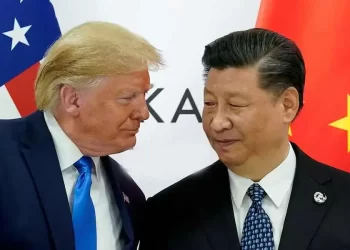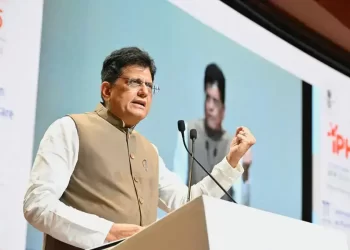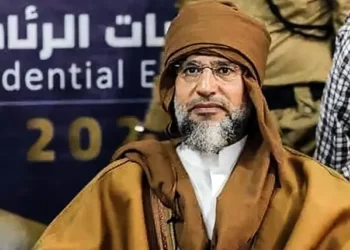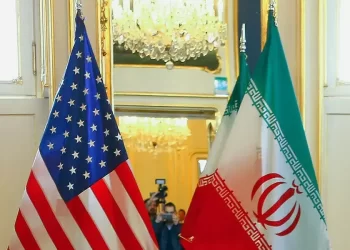JERUSALEM (news agencies) — Israeli Prime Minister Benjamin Netanyahu’s visit to the United States comes as negotiations to end the Israel-Hamas war and recover hostages held in Gaza inch forward — with no immediate deal in sight.
Egypt, Qatar and the United States continue to push Israel and Hamas toward a phased cease-fire agreement that would stop the fighting and free the hostages. The negotiations have repeatedly hit obstacles over disputes about the governance of post-war Gaza and how enduring the cease-fire will be.
Netanyahu’s vowing “total victory” in Gaza to thunderous congressional applause Wednesday risks inflaming tensions with Hamas at a time when talks are delicate. But he also came under increased U.S. pressure to engage sincerely in cease-fire efforts. Critics say Netanyahu is stalling during negotiations so that he can draw out the war for his own political gain.
A team of Israeli negotiators that was meant to travel to Qatar for another round of talks was held back Thursday and may be dispatched next week.
Here’s a look at how Netanyahu’s visit might impact the talks:
During the trip, Netanyahu seemed to avoid public mention of cease-fire talks, angering hostage families in Israel who felt their plight was ignored. Domestic pressure runs high for a deal that would bring home the remaining 110 hostages, but Netanyahu also faces opposition from his far-right governing partners to any agreement to end the war.
His speech to Congress Wednesday made scant mention of the hostages. His office said reaching a deal was but one of several items on his wish list to discuss with American officials.
Still, the visit opened Netanyahu up to face-to-face pressure from Israel’s top ally, on whom it counts for critical military and domestic support.
Both President Joe Biden and Vice President Kamala Harris said that in their meetings with Netanyahu in Washington on Thursday, they would prioritize closing gaps on a hostage deal.
In some of her most forceful comments, Harris said she told Netanyahu “it is time” to end the war and bring back the hostages.
But with Netanyahu keeping an eye on his coalition partners – the key to his political survival – the trip could also be part of a broader delaying tactic to avoid reaching a deal.
“While his coalition is wobbling because of the tension with the extreme-right parties, Netanyahu is deliberately delaying the negotiations for the release of the hostages,” wrote columnist Amos Harel in the liberal Israeli daily, Haaretz, adding that Netanyahu had “engineered” a long trip.
The rapidly changing political developments in the U.S., Harel said, might distract leaders there from pressing the cease-fire talks urgently.
Netanyahu’s visit and his fiery speech to Congress stoked tensions with Hamas at a time when the militant group’s negotiators are at the table.
Hamas reacted angrily to Netanyahu’s presence in the U.S., calling his vows to return the hostages insincere.
“He is the one who thwarted all efforts aimed at ending the war and concluding a deal to release the prisoners,” it said in a statement after the speech. It called Netanyahu’s talk of intensified efforts to free the hostages a “complete lie” to mislead public opinion.
Hamas spokesman Jihad Taha said Thursday the group didn’t believe the visit — during which Netanyahu received a standing ovation from Congress — would prompt enough pressure on him to impact the Israeli negotiating position.
“If the American administration is serious, it should put pressure on the prime minister of the Zionist government Benjamin Netanyahu to stop this aggression,” he said.
But Hamas stopped short of pulling out of talks over the visit, a sign the talks may resume.
Netanyahu’s U.S. trip came as the talks already faced challenges.








